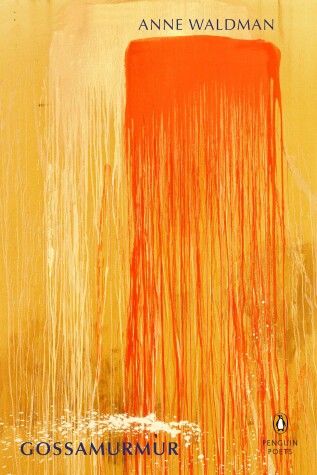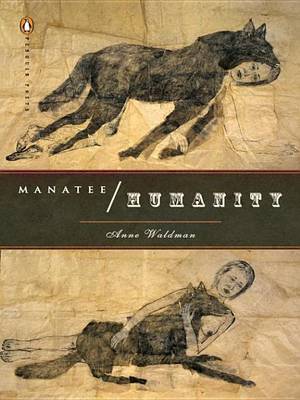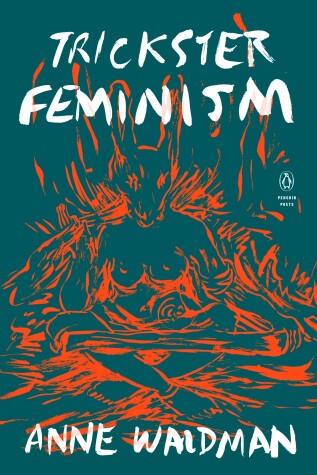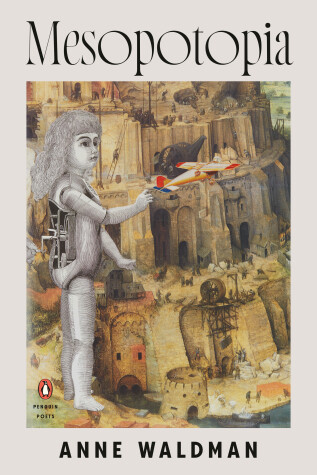Penguin Poets
5 total works
Acclaimed for her visionary, incantatory verse and her experimental ethos, Anne Waldman's newest book-length poem is an allegory of a radical spirit in lockdown, dominated by "Deciders" and "Imposters" who threaten the future of poetry and its archive. A doppelganger nightmare ensues: the imposter "Anne" is a succubus, and the original Anne has to break free from a metaphorical castle of torture and psychological domination. There are travels through Vedic cosmology and ancient Japan before resolution on a treeless tundra, where fragile life forms struggle to survive. Waldman's oracular poem is a witty meditation on identity theft and a searing plea for the primacy of imagination and for collective sanity in our provocative yet precarious time.
Anne Waldman's new investigative hybrid-poem explores the nuances of inter-species communication and compassion. It draws on animal lore, animal encounters (with grey wolf and manatee), dreams, evolutionary biology, neuroscience, and Buddhist ritual to render a text of remarkable sympathy, reciprocity, and power. The poem asks questions as well as urges further engagement with the endangered (including our human selves). Part performance litany, part survival kit, part worried mammalian soundings, Waldman explores, as ever, what it means to inhabit our condition through language and imagination inside a wheel of time. This is the mature work of a philosophical field poet with a shamanic metabolism.
Mythopoetics, shape shifting, quantum entanglement, Anthropocene blues, litany and chance operation play inside the field of these intertwined poems, which coalesced out of months of protests with some texts penned in the streets. Anne Waldman looks to the imagination of mercurial possibility, to the spirits of the doorway and of crossroads, and to language that jolts the status quo of how one troubles gender and outwits patriarchy. She summons Tarot's Force Arcana, the passion of the suffragettes, and various messengers and heroines of historical, hermetic, and heretical stance, creating an intersectionality of lived experience: class, sexuality, race, politics all enter the din. These are experiments of survival.
Mesopotopia explores the vast sweep of our accelerating, precipitous world. From the cradle to the grave, from the mysterious poetic origins of Mesopotamia to our own dystopias of the twenty-first century, Anne Waldman crafts a singular, radical investigation into the syncretic layers of quantum space and dreamtime. She invokes “studying” as the most compelling ritual and tool for evolution and travels to various fellaheen worlds, treading metabolic pathways and ancient “antitheses realities,” and gleans sacred texts that speak urgently through the transports and telepathies of poetry. Troubadour dawn songs, pyramid texts, Buddhist mantras, canonical hours of Judeo-Christian tradition, Persian prayers, Druid sorcery, and the wild, gnarly syntax and modal structure of Waldman’s particular performative passion and wit are all conjured here.
What emerges is a meditation on the salient words of the French poet Antonin Artaud contemplating the destruction and rubble post–World War II: “We are not yet born, we are not yet in the world, there is not yet a world, things have not been made, the reason for being has not yet been found.” Mesopotopia—mythic maelstrom, rhythmic rite of passage, protolanguage trance dance—moves toward release and gnosis.




